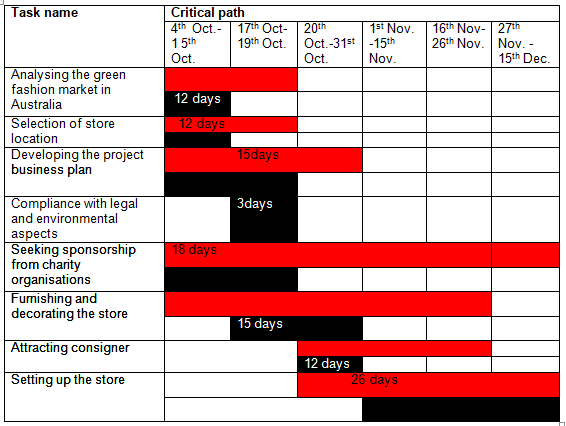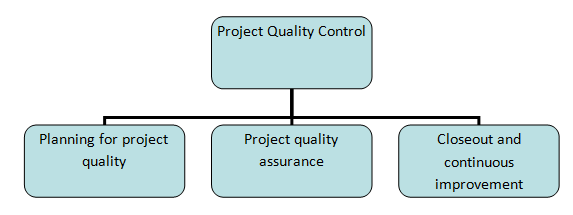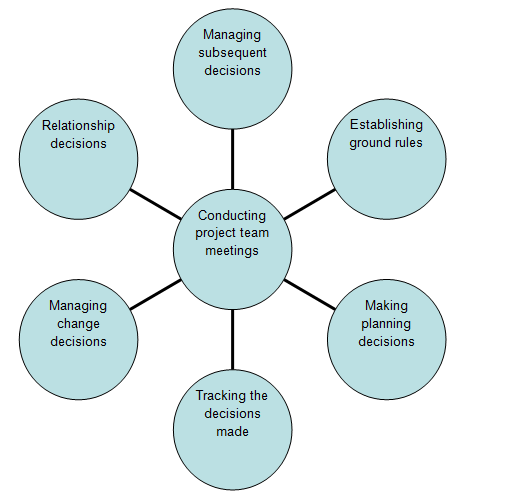Work breakdown structure, critical path and costed time strategy
The chart below illustrates the project’s work breakdown structure. This goal has been achieved by identifying the task, the duration, and the resource requirement in order to execute the task effectively and within the set time.
Chart 1: WBS
Implementing the green fashion concept will play a critical role in minimising the rate of environmental pollution. In a bid to establish the Green Fashion Store, effective time management is essential. Approximately, the store will take 70 days to be completed. It is projected that this duration is sufficient to complete the project.
However, taking 70 days will lead to increase in the resource requirements, which are scarce. Thus, effective time scheduling is paramount. The project manager will reduce the project duration with 20%, which means that the project will take 56 days to be implemented. Crashing strategy will be used in order to arrive at the critical path as illustrated by chart 2 below.
By crashing the time, the Green Fashion Store will be completed within 56 days and the likelihood of the entrepreneur conforming to the time constraint will increase. The areas shaded in black illustrate the critical path that will result in optimal resource utilisation.
Chart 2: the critical path

The Project Manager estimates that the project will require $19,200 in order to be successfully implemented.
Budget and resource allocation
In establishing the new business, the entrepreneur is focused towards ensuring that resources are effectively utilised. In this project, the resource that the Project Manager is mostly focused on relates to time. The green fashion project is time constrained. The Project Manager intends to complete the green fashion project in 56 days. Thus, the entrepreneur will ensure that time is effectively utilised.
Levelling resource allocation technique will be used. This will aid in effective utilisation of slack time by delaying non-critical activities. Moreover, the levelling technique will aid in reduction resource demand, peak resource demand in addition to minimising the amount of resource fluctuation. Some activities will be undertaken concurrently in order to eliminate slack time.
Chart 3: Estimated budget before crashing the amount of time by 20%
However, reducing the amount of time required to complete the project with 20% is expected to increase the amount of financial capital required. Thus, it is estimated that the project budget will increase by 20%. Thus, the green fashion project will require $ 23,040 in order to be completed.
Quality management and control
A number of elements quality management elements as illustrated the chart below will be taken into account in the green fashion store. The project will be implemented as a one-off expense hence eliminating the need to revisit the project upon its completion. The chart below illustrates the variables that will be taken into account in ensuring effective quality management.

Figure 1: quality control
A comprehensive cost-benefit analysis will be undertaken in order to maintain the project within the desired quality. This will be achieved by controlling the prevention cost, external and internal failure, control, and appraisal cost. This will improve the quality of the project.
The Project Manager will ensure that the green fashion store addresses the customer’s needs adequately. To achieve this, a substantial amount of appraisal cost will be incurred. The appraisal cost will entail product audits, product inspections, and reviews.
Some of the elements that will be integrated in assessing the appraisal cost include evaluating whether the process of implementing the store takes into account the desired conditions. For example, an appealing store ambience will be ensured in order to develop unique customer experience.
Moreover, the Project Manager will conduct a comprehensive evaluation of the green fashion products collected from the sponsors to ensure that they are aligned with the specified environmental requirements.
One of the ways through which quality of the products collected will be ensured is by conducting an intensive training on the parties charged with the responsibility of collecting the second hand products. Moreover, the appraisal cost will also entail assessing whether the green fashion store is effectively designed.
The Green Fashion Store entrepreneur is cognisant of the fact that the project may be affected by to lack of sufficient support from the sponsors. For example, customers might not adopt the concept of green fashion as expected. A comprehensive project quality plan will be developed to minimise the adverse effects of quality costs.
The quality plan will outline the standards that the project manager will be required to adhere to in order to satisfactorily fulfil the quality requirement. Regular meetings involving all the team members will be conducted to generate ideas on how to deal with contingencies that arise in the process of implementing the project. The above quality control chart will be used.
Project team performance
The entrepreneur is aware that the Green Fashion Store will depend on the input of all the team members. Consequently, it is imperative for the project manager to ensure that effective team performance is attained.
Optimal team performance can be achieved by incorporating the principles of team management such as organising, leading, controlling, and planning. In a bid to attain optimal team performance, the project manager will take into account a number of issues as illustrated in the table below.
Chart 4; project team performance
By implementing the above strategies, the project manager will be able to improve the outcome of the project.
Project team meetings
In a bid to ensure that the project is successful defined, planned, and executed, a number of project team meetings will be conducted. A number of issues will be discussed during the project team meetings as illustrated by the figure below.

Figure 2
Project team identity
In a bid to ensure that the project team members are committed to the green fashion store, the project manager will ensure that adequate team identity is established. Developing team identity will contribute towards development of a high level of commitment amongst the team members. The team members will identify with the green fashion store.
Thus, their efforts will be focused at achieving the project’s goals. The project manager intends to create team identity by conducting frequent meetings. The meetings will lead to improvement of the team members’ attitude and opinion towards the project. Consequently, the likelihood of developing team behaviour will be increased.
Team identity will also be developed by nurturing a high degree of interaction and information sharing amongst the team members. This goal will be achieved by utilising the co-location technique. Virtual teams will not be used in the project. Thus, the project team members will have an opportunity to interact with another thus developing a strong working relationship.
The phrase ‘green fashion’ will be used as the project team name. This name will make the project team more tangible. Moreover, an appealing team logo will be designed. The logos will be designed on T-shirts and caps that will be worn by the project team members. As a result, the project team members will love being associated with the project.
In addition to the above strategies, the project manager will ensure that effective team rituals are developed. The rituals will lead to establishment of strong and unique team identity. One of the rituals that will be developed entails giving the team members a T-shirt inscribed with the milestones achieved.
Monitoring and evaluation
This process improves the project outcome by identifying areas that require adjustments. Furthermore, monitoring and evaluation allows the project manager to evaluate the achievements that have been accomplished.
The process of monitoring and evaluating the Green Store Project will take into account a number of issues, which include the project costs, resources, project sponsors, and the entire project management team. Participatory monitoring and evaluation strategy will be adopted and this strategy will entail taking into account all the project stakeholders.
The project sponsors will be evaluated in order to determine whether they are providing the necessary project guidance. On the other hand, the project team members will be monitored in order to determine whether their actions are positively influencing the completion of the project. Monitoring and evaluating resources will play a critical role in ensuring that the project resources, which are scarce, are optimally being utilised.
By integrating effective project monitoring and evaluation, the project manager will be in a position to promote the development of positive behaviours amongst the team members. The entrepreneur intends to complete the Green Fashion Store within 56 days. Consequently, optimal monitoring and evaluation with regard to how time is utilised in implementing the project will be undertaken.
The project will monitor the project’s progress by tracking the Gantt chart by incorporating a baseline Gantt chart. The respective activities in the Gantt chart will be tracked. Periodic reports regarding the project process will be formulated by developing a control chart.
Consequently, the project manager will be in a position to determine the project’s trend. For example, the project manager will assess whether the project progress is ahead or behind schedule, and hence report to the stakeholders more effectively.
In addition to the above types of evaluation, the project manager will also evaluate the customers’ opinion regarding the green fashion store. One of the elements that will be taken into account entails assessing whether the target customers have integrated the concept of green fashion in their consumption processes.
Consequently, the project manager will be able to determine the likelihood of obtaining support from the customers. To evaluate the performance of project amongst potential customers, the entrepreneur will conduct a market survey through the green fashion website that will be established. Moreover, emerging social media platforms will also be used.
Project closure
Projects have a definite timeframe and must be completed within the set deadline and transferred to the owners. Consequently, it is imperative for project managers to ensure effective project closure. The project manager is of the opinion that the project will be successfully completed. Consequently, normal project closure technique will be undertaken. The closure will comprise a number of activities, which include,
- Conducting a post project audit to determine the degree of project success
- Undertaking wrap-up closure activities [which include paying out the bills and closing the project accounts]
- Conducting individual and team evaluation
- Preparing a final report that summarises the entire project. The final report will be comprised of a number of elements which include;
- Project performance review- This will be achieved by reviewing whether the project is in conformity with the set standards.
- Project analysis
- Lessons learnt and recommendations on how to improve future projects
- The project team members and the volunteers will be acknowledged and thanked for their effort. The acknowledgement will be undertaken by identifying each of the team members’ contribution to the establishment of the green fashion store.
Potential obstacles
The project life cycle will be comprised of three main stages, which include the start, project life, and finish. A number of activities, which include project definition, planning, execution, and project delivery, will be undertaken during the project life cycle.
However, various obstacles might affect project implementation and success adversely. Consequently, it is imperative for project managers to adopt effective preventive measures. Some of the risks potential obstacles that might be experienced in this project are discussed herein.
Implementation challenges– One of the major obstacles that might affect the project relates to lack of commitment amongst the team members. Such occurrences may limit the likelihood of the project being completed within the set timeframe. The project team members may lose momentum, hence drifting from the set project goals.
Development delays- The entrepreneur intends to cut the amount of time required to complete the Green Fashion Store project with 20% and to achieve this goal, the project manager will adopt the crashing strategy. Considering that the Green Fashion Store is a new entity, the firm does not have adequate staff.
Consequently, the likelihood of some project team members multitasking is high as some activities and assignments will have to be completed within the same time. Multitasking may limit the effectiveness with which the project team members undertake their duties. Moreover, excessive multitasking may lead to time loss hence affecting the project completion.
Cost increment- Existence of resource bottlenecks is another major obstacle that might affect the project.
Risk management
Occurrence of risk might hinder the project implementation. Consequently, comprehensive risk management process will be adopted. Four main risk management aspects, which include risk identification, risk response control, risk assessment, and risk response development will be incorporated. The project manager will integrate the following risk management strategies.
- Assessment of the milestones- The project manager will evaluate whether the set milestones are achieved.
- Balancing project activities with personal activities, the project manager will integrate optimal time management strategies to prevent the team members’ infectiveness because of multitasking.
- Effective allocation and control of project resources; this will prevent deviation from the predetermined project budget.
Summary and recommendations
Implementing the above project plan will improve the likelihood of the Green Fashion Store succeeding. The feasibility of the project is enhanced as the project will contribute towards environmental protection and the project will promote consumption of ‘green fashion’, hence minimising environmental pollution and climate change.
Moreover, the project feasibility is enhanced by the fact that customers are increasingly becoming conscious of the environment. Therefore, project sponsors will be committed in supporting the project. The success of the project will depend on the effectiveness with which the available project resources are managed. Time is one of the most important resources in the process of implementing the Green Fashion Store.
By implementing the time crashing strategy, the project manager will minimise the duration within which the project has to be implemented. As a result, the amount of resources required will go down. The project manager will be required to assess the work breakdown structure in order to determine the most effective way to crash the project time. Analysing the WBS will enable the project manager to define task durations effectively.
In a bid to improve the project outcome, effective quality management, and control should be integrated, by formulating optimal quality standards. Through effective quality control, the project manager will eliminate non-conformities.
Non-conformities underscore aspects that add no value to the project but they might be inevitable in a project management process if the project manager fails to observe effectiveness for optimal results. The success of the Green Fashion Store project will be determined by the commitment of all the team members, which underscores the importance of optimal project team management.
The project manager can achieve this goal by integrating effective team formation and development strategies such as effective conflict management and communication, which will improve the effectiveness with which the project team members interact.
The project manager should ensure that effective monitoring and evaluation mechanisms are developed by integrating Gantt charts, which should be tracked continuously to improve the likelihood of identifying and adjusting deviations that occur. Upon its completion, the manager should ensure that effective project closure is undertaken by conducting an audit of the project in order to determine its success.
The success of the project might be subject to various internal and external challenges. Consequently, it is imperative for the project manager to integrate effective risk management strategies by ensuring that risks are identified effectively in a bid to address any challenge that might arise during the project management process.